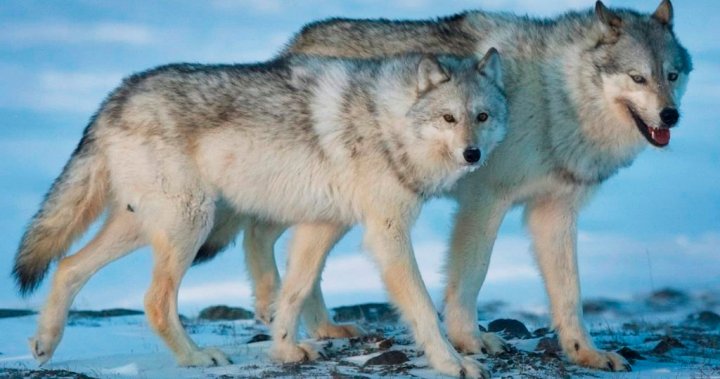B.C.’s wolf cull program, aimed at helping endangered caribou populations, has been criticized by Pacific Wild for being ineffective and harmful to wildlife. Ian McAllister of Pacific Wild spoke out against the program, stating that the data they received from the government showed that 248 wolves were shot in the Interior using helicopters and the “judas wolf” method. This method involves putting a satellite receiver on one wolf and waiting for it to reunite with its pack before killing all the wolves. Critics argue that the program is more like wildlife extermination rather than management.
Victoria has been implementing the wolf cull program in an effort to assist in the recovery of critically endangered herds of caribou. However, those opposed to the program claim that it fails to address the root cause of caribou decline, which they attribute to habitat destruction from clearcut logging. Despite the province’s claims that the program is effective, critics argue that it is cruel and misguided as a solution to the decline of herbivores in the region.
The Ministry of Water, Land, and Resource Stewardship, which runs the wolf kill program, did not respond to requests for comment from Global News. Pacific Wild’s data on the number of wolves killed aligns with previous years’ confirmed numbers from the ministry. Since the program’s inception in 2015, over 2,100 wolves have been killed, according to Pacific Wild. The organization is calling for the immediate cancellation of the program, citing ethical concerns about the mass killing of wolves.
The ongoing wolf cull program in B.C. has faced criticism for its lack of effectiveness in helping endangered caribou populations. Pacific Wild has raised concerns about the methods used in the program, such as shooting wolves from helicopters and the “judas wolf” technique. Critics argue that the program is more focused on extermination rather than management of wildlife, and does not address the underlying issues of habitat destruction from activities like clearcut logging.
Despite the provincial government’s assertion that the wolf cull program is necessary for the recovery of endangered caribou herds, opponents believe that it is a misguided approach to addressing the decline of herbivores in the region. The conflict between those in favor of the program and those against it highlights a larger debate surrounding wildlife conservation and management practices in British Columbia. As the debate continues, it remains to be seen whether the wolf cull program will be reevaluated or if alternative solutions will be considered to protect both wolves and caribou populations in the province.
In conclusion, the ongoing wolf cull program in British Columbia has drawn criticism from organizations like Pacific Wild, who believe that it is ineffective and harmful to wildlife. The program, aimed at assisting endangered caribou populations, has been described as wildlife extermination rather than management due to the high number of wolves killed using controversial methods. Critics argue that the root cause of caribou decline lies in habitat destruction from activities like clearcut logging, and that the wolf cull program fails to address this issue. The debate surrounding the program highlights larger concerns about wildlife conservation and management practices in the province.


